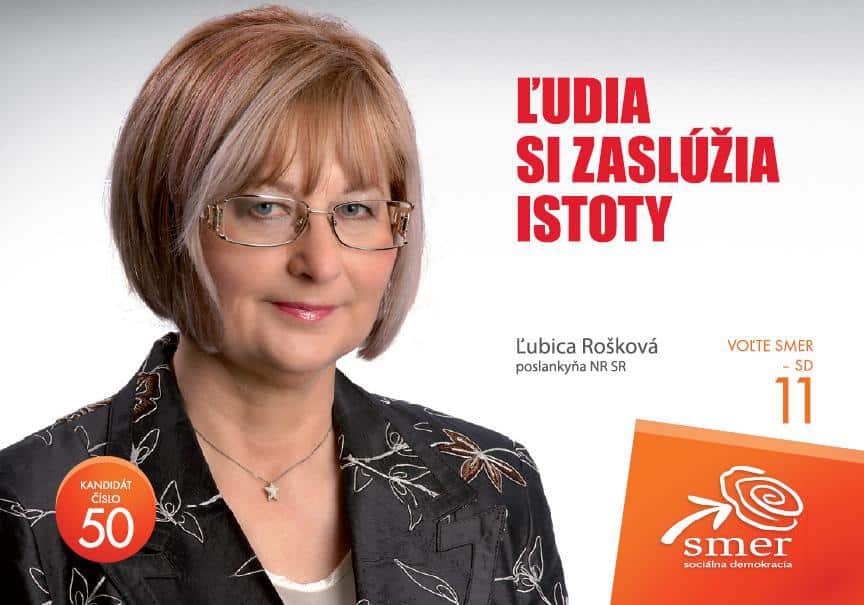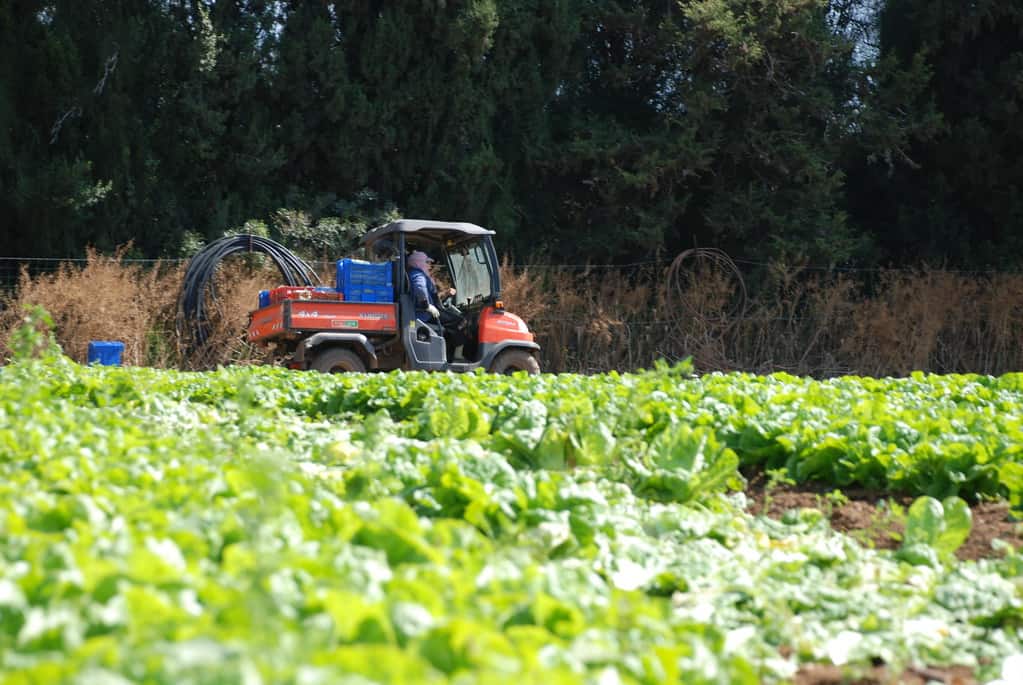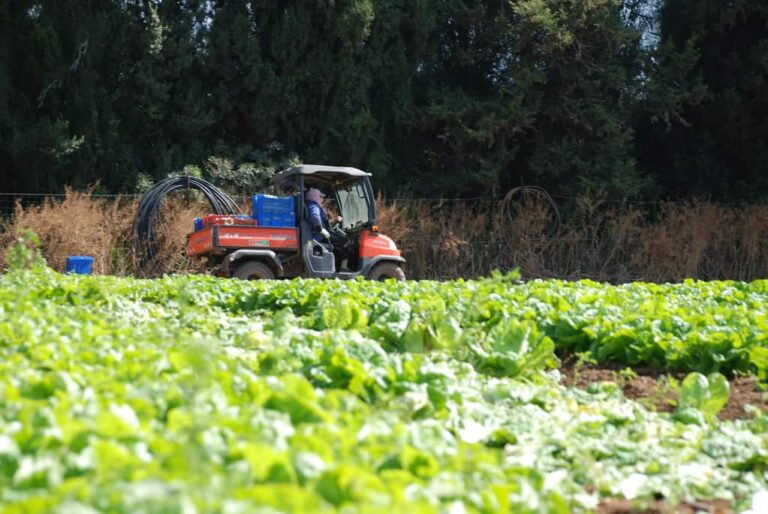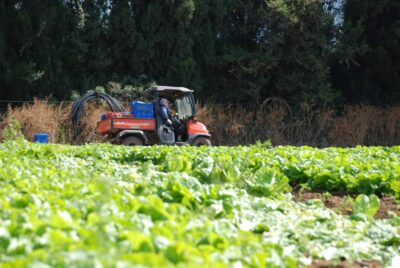The European Union directs a massive amount of money towards Slovakia in the form of agricultural subsidies. These funds are managed and redistributed by the Agricultural Paying Agency (APA), an organisation with an annual budget of more than half a billion euros at its disposal. This kind of money attracts not only farmers and agricultural companies, but also people with more questionable intentions.
Ľubica Rošková has been nicknamed “The Countess” by those in Eastern Slovakia familiar with her style of business. The 66-year-old psychologist started her business career in 1992, and later became involved in politics, becoming a member of parliament for Smer-SD, the political party led by Robert Fico, Slovakia’s former long-time prime minister.
Following an unsuccessful 2016 election, Rošková returned to business, this time in the field of agriculture. This is where she started making money, and trouble.
The misuse of agricultural subsidies is a huge problem in Slovakia. There are around 6,000 farming subjects in Slovakia, with an estimated 50% having applied for subsidies. The average subsidy offered for a hectare of land is 240 EUR.
In November 2016, “The Countess” invested 6640 EUR into a company called Gard and renamed it Agro Porúbka. The firm, owned by Rošková and her associate Jozef A (whose full name is redacted as he is currently under criminal indictment – VSquare note), is based in Eastern Slovakia and boasts an impressive portfolio covering businesses ranging from car rentals, real estate, administrative services, translation services, and forestry and agriculture. Though the company’s total net worth isn’t particularly high — in 2018 its income reached EUR 165 464 — its story has become extremely high-profile in Slovakia.
Both owners are now under criminal investigation. The National Criminal Agency (NAKA) is looking into the accusations of subsidy fraud and damage of financial interest of the European Union.

“People deserve certainties”, says an official motto of SMER party, ruling political party for last 12 years in Slovakia. Ľubica Rošková was an unsuccessful candidate Credit: Official SMER party Facebook profile
In 2016 and 2017, Agro Porúbka allegedly illegally obtained agricultural subsidies worth EUR 150,000. In 2017, these subsidies would have been for a total area of only 430 hectares spread across 63 different locations in eastern villages and towns, which, given that Agro Porúbka officially had only seven employees that year, would have been an impressive feat.
The company’s suspicious activites were brought to light by a reporter at Slovakian newspaper Denník N. Later, the Agricultural Paying Agency control confirmed the journalist’s findings. The company is still under investigation, though the agency is already calling for the return of 150,000 euros that were paid out in EU subsidies. Though the amount isn’t large, it magnifies the way in which EU funds have been abused in Slovakia.
A number of irregularities were discovered by the investigators, such as the fact that Agro Porúbka had collected agricultural subsidies for land that was not agricultural at all. Some of these supposed “agricultural” areas included a small airfield for powder aircrafts, a concrete parking lot, a football field, an inaccessible river island, and an estate belonging to a gas company, as was uncovered by Aktuality.sk.
In other cases, Agro Porúbka applied and received funds for land that belonged to other people, usually without their knowledge.
Denník N also uncovered a story about local farmers that came into direct conflict with Rošková and her associates because of her attempt to apply for subsidies connected to their land. In some cases, neither the farmers nor Rošková received any money, causing serious economic damage to the farmers. Some of the people who opposed Rošková, moreover, were allegedly subject to physical attacks by people connected to Agro Porúbka. Others who complained to authorities saw no action, stoking suspicions of Rošková’s close relationship with law enforcement.
The APA control also confirmed that Agro Porúbka was not farming on the lands that it received the subsidies for.
The explanation for how Agro Porúbka managed to receive subsidies lies in the way the system is designed. The redistribution of EU agricultural funds is based on a system of trust: farmers are not asked to provide evidence of their ownership of the land in question. If a fraudster connects a few small lands into a larger one and uses them to apply for subsidies, nobody will immediately find out, not even the real owners of the land. The APA will only investigate land claims if two different entities ask for subsidies for the same plot of land.
Subsidised and defrauded. Visegrad EU funds under the eye of OLAF
In its 2018 report, OLAF wrote that in the areas of European Structural and Investment Funds and Agriculture, 1,649 fraudulent and non-fraudulent irregularities were detected in Slovakia for the 2014-2018 period, comprising of 19.29% of all of the EUpayments (the highest proportion among all EU countries. Spain came in a distant second place with 3.30% of payments being impacted by irregularities.). 14 investigations were concluded with recommendations from OLAF and the request that 2.29% of funds be returned.
The biggest number of irregularities (47) was reported by Operational Programme Quality of Environment in 64 areas. The frauds represented 34 cases (30%), three are under criminal investigation, the rest is in “administrative phase”, which means in initial checkinging. None of those cases has been closed yet.
In Slovakia, every criminal activity regarding EU subsidies is also investigated by the National Criminal Agency (NAKA). For the year 2018 NAKA identified several types of criminal activities, where EU money were involved:
- a) adjusting the conditions of the call to suit a particular applicant for the funds
- b) increasing the value of the subject of the contract and delivering invoices for fictitious services
- c) applying for a contribution or settling funds for a project with fake documents
- d) unauthorized declaration of fulfillment of conditions for receiving the dotation or direct support of agricultural land.
The police has claimed that in 2017-2018 they launched 93 criminal charges involving 151 persons. 44 people were convicted. One person was sentenced to 10 years in prison and to a fine of EUR 100 000 in December 2019, but appealed. The case concerns receiving EUR 5,3 million from APA for viniculture business. OLAF found that EUR 2,8 million of those were used ineffectively and the fraudulent behavior was suspected.
This text was financially supported by GACC (The Global Anti-Corruption Consortium) aimed at the Visegrad countries. Member centers Átlátszo and Direkt36 from Hungary, Fundacja Reporterów from Poland, Ján Kuciak Investigative Center from Slovakia and investigace.cz from the Czech Republic are working on the project.







